Today marks exactly one year since the 2022 general election was held.
Robert Abela had been Prime Minister since 2020, when he was elected to the post following an internal Labour Party exercise after Joseph Muscat had stepped down following mass protests in the wake of developments into the Daphne Caruana Galizia murder investigation. The 2022 election was the first Abela contested as the leader of his party.
The Labour Party achieved 55.11% of the vote, a percentage any politician would be extremely proud of. The PL had run a very successful election campaign at the time, while the Nationalist Party was still seen as being weak, and the PN’s internal issues were still being felt. Abela’s government had also, for the most part, successfully managed the Covid situation in Malta, supporting people and businesses throughout. It managed to keep unemployment at very low levels.
This legislature saw the Labour government start out as strong as ever, but over the course of the year the situation quickly deteriorated. The government, now, is in difficulty, and the latest political survey has shown that it has lost support since the election.
The country continued to face challenges caused by international situations. Covid, while dying down over the course of 2022, had an impact on Malta’s economy. The world also didn’t really have a chance to recover economically from the impacts of the virus before Russia invaded Ukraine. The war had global economic impacts, causing rising energy prices abroad. Prices of everyday goods also began to rise. The government’s energy subsidies had proven to be a good move to help people with their spending power, and to help businesses with their costs.
The subsidies for fuel, energy and grain have been costly initiatives, but have been largely welcomed, save for some criticism questioning whether subsidising fuel is the right thing to do if the country wants people to move away from using their private vehicles.
During the first year of this legislature, the government put forward a few major initiatives and proposals, but they were mostly overshadowed by a number of controversies, scandals and incidents that are taking their toll.
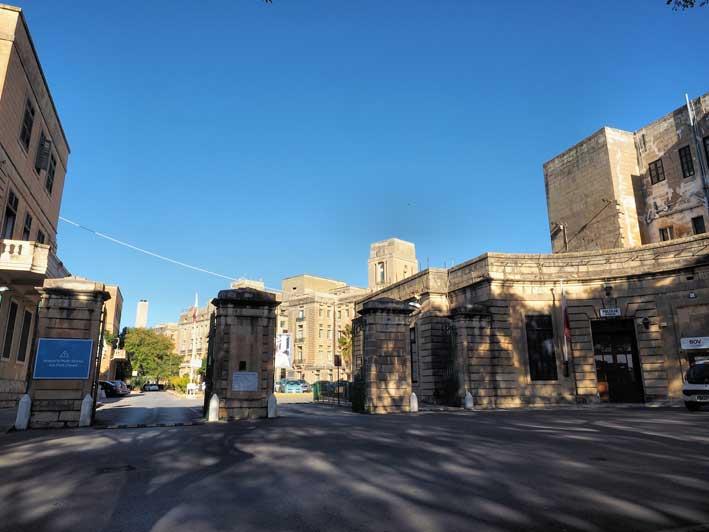
Three hospitals
By far the issue that has had the biggest impact on the country this past year was the court’s decision annulling the Steward Health Care concession.
The court nullified the contracts awarded in a damning ruling which described the deal as having been “fraudulent”, ordering the return of the hospitals to the government. Steward Health Care appealed the sentence, but a day later said that it would be terminating the concession itself and leaving the country.
The tit-for-tat arguments between Steward Health Care and the government are still ongoing regarding the termination of the agreement.
The concession, which was originally signed with Vitals Global Healthcare and later taken over by Steward, was one of the major agreements signed by the Labour government, while also being one of the most controversial.
The court case to annul it had been filed by PN MP Adrian Delia, when he was opposition leader. The court’s decision is seen as a massive victory for the PN and was a blow to the Labour administration.
Protests took place, demanding that the government take action to recover the money paid to the concessionaires.
The impact of the court judgement was visible in the polls. One by MaltaToday on 12 March showed the Labour Party’s lead over the PN plummet to just three points. The newspaper said that the PL was polling at 30.8% and the PN at 28.4%, while ADPD and other parties are at 4.7%.
A motion had been filed in Parliament by the Nationalist Party calling on Parliament to condemn the hospitals deal and demand that Prime Minister Robert Abela take all necessary actions, including but not limited to, instituting legal proceedings so that the Government of Malta recovers any amount it improperly paid to Steward and Vitals Global Healthcare and/or their subsidiaries.
But the government decided not to vote on the original wording, and instead presented amendments to the motion. The PL's amendments instead called on Parliament to "continue to follow the ongoing civil procedure regarding the transfer of the St Luke's Hospital, Karin Grech Hospital and the Gozo General Hospital to Steward Malta Assets Limited and Vitals Global Healthcare Assets Limited and / or to their subsidiaries; and also give a mandate and full confidence to the Government led by the Prime Minister Robert Abela, to take all the necessary actions needed and steps he deems appropriate in the circumstances and in the appropriate forums, as he has always done, in the interest of all the Maltese and Gozitan people, at the opportune moment and when it is wise to do this in the national interest."
The PN walked out of Parliament before the vote was taken and joined protesters who were outside of the building. Abela’s speech in Parliament that day led Opposition Leader Bernard Grech to accuse him of defending the concessionaires.

The Rosianne Cutajar – Yorgen Fenech chats
While the impact of the damning hospitals judgement continues, another scandal broke.
Thousands of messages that were exchanged between PL MP Rosianne Cutajar and Yorgen Fenech were published by former Chair of the Malta Book Council Mark Camilleri. The chats had taken place between June and September 2019, after it was already known that Fenech was the owner of 17 Black, but before Fenech was arrested in November 2019 for his alleged involvement in the murder of Daphne Caruana Galizia.
Calls for Rosianne Cutajar’s resignation from the post of MP have been made, but Abela has argued that Cutajar already paid the political price for the content of the published Whatsapp messages with Fenech over two years ago, when she resigned from the post of Parliamentary Secretary. Cutajar had stepped down in 2021 over a Standards Commissioner investigation into her ethical conduct with Fenech, regarding reports that she had benefitted from a property deal involving the business magnate.
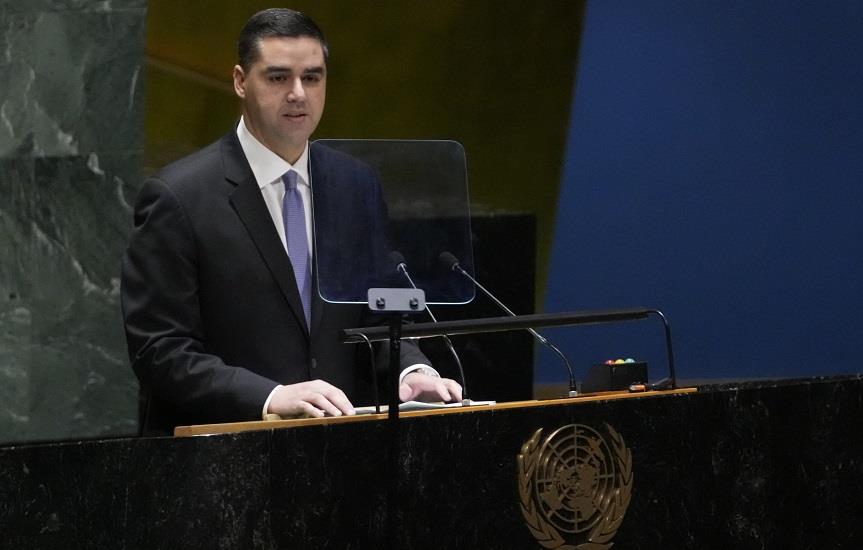
UN Security Council
A point of pride for the government this legislature was Malta’s election as a non-permanent member of the UN Security Council.
Prime Minister Robert Abela said that “serving on the Council of the UN provides Malta a significant opportunity to contribute to the maintenance of global peace and security.” In February 2023, Malta also took over the rotating Presidency of the Security Council for that month.
Among the issues which were discussed during its month-long presidency, were the use of children in armed conflicts, the rising sea-levels and its implications for peace and security, and the war in Ukraine.
Off the Grey List
One controversial issue that had come to an end during this legislature came about when Malta was removed from the Financial Action Task Force’s grey list last June.
In its decision, the FATF had welcomed Malta's “significant progress in improving its anti-money laundering/combating the financing of terrorism (AML/CFT) regime. Malta has strengthened the effectiveness of its AML/CFT regime to meet the commitments in its action plan regarding the strategic deficiencies that the FATF identified in June 2021, which were related to the detection of inaccurate company ownership information and sanctions on gatekeepers who fail to obtain accurate beneficial ownership information, as well as the pursuit of tax-based money laundering cases utilising financial intelligence.”
The government had been heavily criticised for Malta being placed on it in 2021, and Prime Minister Abela had said that getting off the list arguably confirms that Malta is a 'serious and reputable' jurisdiction.
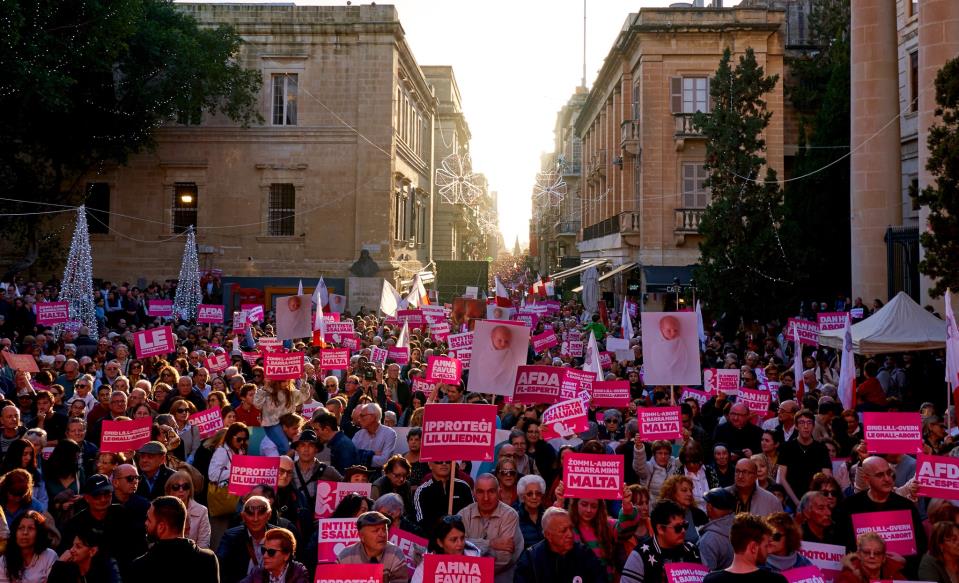
Abortion
One proposal that saw most debate came over the government’s decision to introduce a bill to amend Malta’s strict anti-abortion laws. The bill was tabled in Parliament last November.
The bill, the government had said, is intended to free doctors and pregnant women from the threat of criminal prosecution if a pregnancy is terminated for reasons related to the woman’s health. At present, abortion is prohibited at law in all circumstances and both the doctor and mother risk jail time if they go ahead with a termination, irrespective of the reasons why.
But the bill saw strong opposition, primarily due to the wording used in the proposed clause. The bill as is reads that no crime under the clauses banning abortion under Maltese law would be committed "when the termination of a pregnancy results from a medical intervention aimed at protecting the health of a pregnant woman suffering from a medical complication which may put her life at risk or her health in grave jeopardy."
There was strong opposition to the proposal, and thousands had flocked to Valletta in December, in what was a massive protest organised by The Life Network Foundation in collaboration with Doctors for Life and I See Life. The bill was still voted through to Committee stage in Parliament, with the PN opposing it.
Eventually, the government said that it would be amending the proposed clause. The exact wording of the new clauses has not yet been made public. Prime Minister Abela has, however, said that the government has had a number of discussions with anyone who had “genuine” concerns, and from these discussions is addressing two main points. The first revolves around concerns that there may be a doctor who abuses the amendment and allows an abortion to take place when it should not. The government is working to make sure that it is not abused. The second point, he said, was that the wording should ensure that a baby which can be born, is born and is allowed to live.
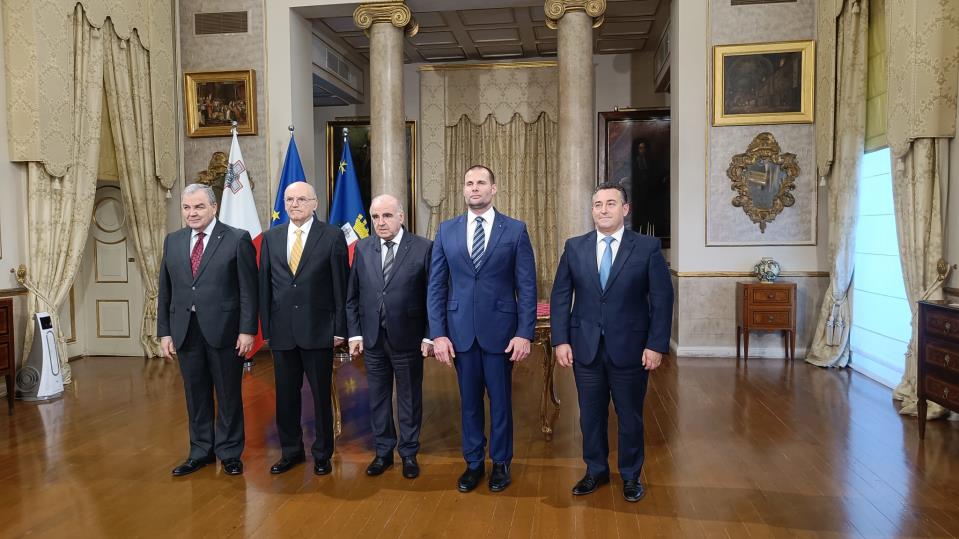
Standards Commissioner and Ombudsman
Another parliamentary issue that had gotten heated was over the appointment of a new Standards Commissioner
There had been no Standards Commissioner since George Hyzler was appointed to the European Court of Auditors. In the case of the Ombudsman’s post, Anthony C. Mifsud’s five year term had officially expired in March 2021, however he remained in office until a replacement was found. While both the PN and PL were in favour of judge Joseph Zammit McKeon being appointed as the new Ombudsman, there was controversy over the Standard Commissioner’s post. The PN was not in favour of the government’s choice of former Chief Justice Joseph Azzopardi for the post.
This impasse had led to the introduction of what is known as an anti-deadlock mechanism, which lays down that the Standards Commissioner should be nominated with the support of both sides of the house, but in the event that the required two-thirds majority is not reached in two separate votes, then the appointment is made via a simple majority on the third and final vote. The former Chief Justice was voted in by a simple majority, with the PN voting against.
€700 million for green projects
A major electoral pledge which the government began implementing in 2022 came about through the setting up Project Green, the agency entrusted with delivering on the €700m promised by government for environmental projects.
The first major project that is being undertaken by Project Green is in San Ġwann, which is planned to be getting 6,500 square metres of green open space in place of what is currently an urbanised and traffic-heavy area, while an underpass will be created for traffic to pass through.
The start of project green is hoped to bring about a wave of urban greening in the country. The agency’s CEO Steve Ellul had said at launch that the agency will work on making existing green spaces more accessible, while creating many new ones, for cleaner air quality, lower noise pollution and greener landscapes in all localities.
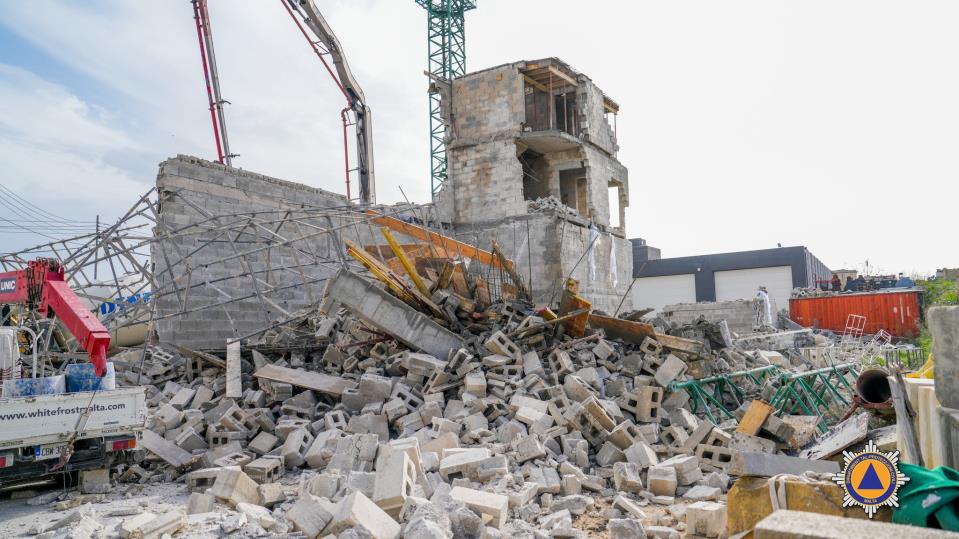
Construction
The issue of planning and construction continues to be a hot issue in the country.
An incident in December brought the dangers of the construction sector to the forefront. A building collapsed in Kordin, causing the death of a young man named Jean Paul Sofia. Five others were hospitalised as a result of the incident. A magisterial inquiry was launched and is still ongoing, however calls for a public inquiry have been made by Sofia’s family. The government, however, has been resisting such calls.
Abela has been urging the magistrate leading the magisterial inquiry to conclude the process without delay. He has also said that justice demands that anyone responsible be charged. On the issue of a public inquiry, Abela said it would disrupt rather than help the search for justice.
In a statement, Sofia’s parents said that “Justice for our son does not begin and end with the prosecution and eventual conviction of those who are allegedly criminally liable for his death.” Full justice for Jean Paul also means an inquiry into whether State authorities or representatives failed in their obligation to safeguard his life and failed to take preventative measures to protect him and others from the risk of loss of life and physical injury, they said.
Separately, the government has issued a public consultation on the licensing of building contractors. The proposed law would mean that, among other things, building contractors could have their licences suspended or revoked.
Domestic violence
Another issue that came to the forefront was domestic violence, when the action taken by the authorities came under heavy scrutiny following the Bernice Cassar murder.
Cassar was killed in a shooting in Kordin last November on a road close to MCAST. Roderick Cassar is charged with the femicide of his wife, and is pleading not guilty.
She had filed domestic violence reports against Roderick in the past.
An inquiry into the responsibility of state entities in relation to the murder found that the system failed Bernice Cassar. The inquiring judge found that the whole system of domestic violence didn't work as it was meant to work, as it didn't protect who was repeatedly asking for protection. “The system didn't work because 1) lack of resources, and 2) increasing workload. With regard to the police this led to a delay in the processing of reports, bad or no risk assessment and an inadequate and non-immediate response on the part of the police,” he said, among other things.
The Justice and Home Affairs Ministers had taken note of the recommendations made by the inquiry, and issued a statement outlining what has been done and what they intend to do, but this was not enough to stop criticism.
Golden passports
Another controversial issue was the sale of Golden Passports. Before the election, Malta had suspended the golden passport scheme for Russian and Belarusian nationals, however this did not keep Malta’s sale of citizenship out of the limelight.
In September last year, the European Commission decided to refer Malta to the Court of Justice of the European Union for its investor citizenship scheme. “The Commission considers that granting EU citizenship in return for pre-determined payments or investments without any genuine link to the Member State concerned is not compatible with the principle of sincere cooperation enshrined in Article 4(3) of the Treaty on European Union, and with the concept of Union citizenship, as provided for in Article 20 of the Treaty on the Functioning of the European Union,” it had said.
Then there were of course other issues that were in the spotlight the past year, such as debates over media reforms and the increase in traffic fines due to the high number of accidents.
With the first year of this legislature coming to a close, the government is firefighting due to the major controversies. The hospitals deal fallout is unlikely to die down any time soon, as calls for criminal investigations and accountability to be upheld continue to be made. Many of the other issues will also still need to be tackled.